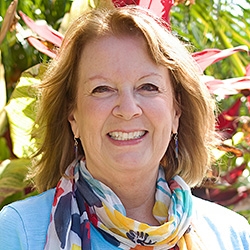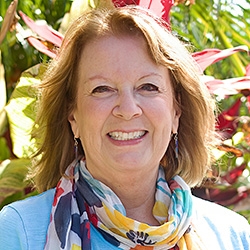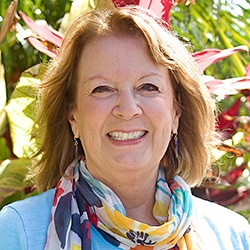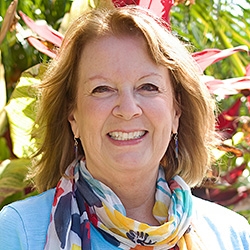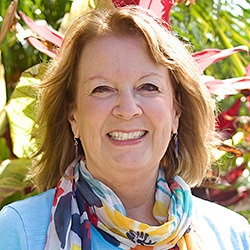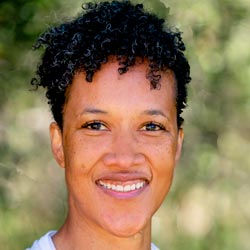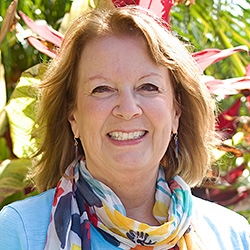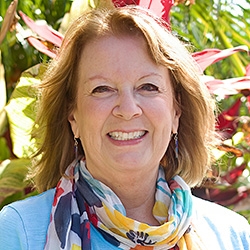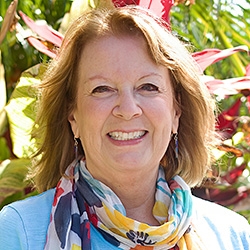

Search Results: peace
-
Ask the Trainer: Finding ease and authenticity when writing to someone with cancer.
-
Ask the Trainer: Can all needs be met when illness limits the capacity of one person to meet the needs of her partner?
-
CNVC Certified Trainer Miki Kashtan talks with radio show host Hollis Polk about strategies for communicating with family members whose political views oppose our own.
-
LoraKim Joyner addresses the sense of overwhelm that can accompany holding the needs of the many. Practicing self-empathy is a pathway to living in the tension of mutually holding my needs and the needs of others.
-
LoraKim explores what gets in the way of seeing the inherent worth and dignity of others when there is conflict in congregations. The strategies LoraKim offers can be applied to any spiritual community.
-
Developing interpersonal relationship skills in congregations is integral to working with the conflicts that arise. These skills can be applied to any spiritual community.
-
This holiday, shift your focus from what disappoints you to the true whisperings of your heart. Compassion is an inside-outside process. In this telecourse recording, you will experience four simple tools for savoring your own precious needs, allowing you to experience greater compassion and harmony this holiday.
-
Trainer Tip: Here are some options for tense moments in conversations: try a "redo", understand and recognize your habits, pause to regroup, empathize with the person so they feel heard, check your mind frame before speaking, and name some appreciations about one another.
-
With more and more news coverage on the increase in climate events around the world, climate change is slowly becoming accepted as an emergency. But how do we stay sane amongst all the chaos and to go one step further how can we take action whilst being grounded and calm?
-
When we care about our cause and want to mitigate disaster, we may become reactive. However, transformation comes through connection, rather than convincing, judging, criticising, controlling, and making demands of others. To inspire change, get curious about how they relate to the topic – and get support for yourself elsewhere to process grief, become more present and compassionate, speak self-responsibly, and make requests.
-
Tools for creating simple agreements with your group about what to do when conflict arises.
-
Trainer tip: NVC focuses on shared human values and needs, and encourages the use of language that increases good will -- plus avoidance of language that contributes to resentment or lowered self-esteem. It emphasizes taking personal responsibility for choices and improving the quality of relationships as a primary goal. For today, focus on making observations without moralistic judgment in at least two of your interactions.
-
Trainer tip: Whenever we judge someone else in any way, we create a barrier and distance between us and the other person. Instead, consider shifting from judging other people to awareness of how their behavior affects your feelings and needs. This can make a profound difference in your ability to live peacefully. Read on for more.
-
When we ask something of a person and threaten negative repercussions if she doesn’t comply, we're making a demand. Demands limit the possible responses and reduce joyful participation. Instead, look to find mutually satisfying resolutions. And look for ways to change your demand into a request. Read on for more.
-
Trainer Tip: When there's conflict if you set the intention to connect and build trust first, you're more likely to move towards resolution. This can be built through offering reflections that captures essence of what's important to each party. Once connection and trust is established, then begin the process of creating strategies and solutions.
-
Trainer Tip: Notice if something within your agency will bring you the serenity you want. If not, then notice the needs you are trying to meet by wanting to take that action. Then then choose another action that's more likely to have the desired effect.
-
Hi friends, My name is Itzel and I’m happy for this opportunity to share a bit about myself and how I came to teach NVC. I was an activist before I knew what the word meant. When I was a child, I often argued with the adults around me about what I thought was “right.” If I had a nickel for every time a grown-up said to me, “You should be a lawyer,” I probably would’ve collected enough money to pay for the law school education that I eventually got. I left my traditional legal career path after more than a decade to become a...
-
Trainer Tip: Ready to start a fight because you're right? Consider another strategy.
-
Trainer Tip: In Compassionate Communication, we consider needs to be universal. That means that while we all have the same needs, such as for love, support, shelter, food, joy, caring, etc., we choose different ways to meet our needs.
-
Trainer Tip: At least once today celebrate yourself and your progress, every step of it. We all have a starting point. No matter where you are in your life, you have made progress. Every mistake, every victory, and every confusing moment can lead you forth and can be something to celebrate.
Quick Links

Stay in Touch!
We value your privacy, won't share your email address and you can easily unsubscribe any time.







